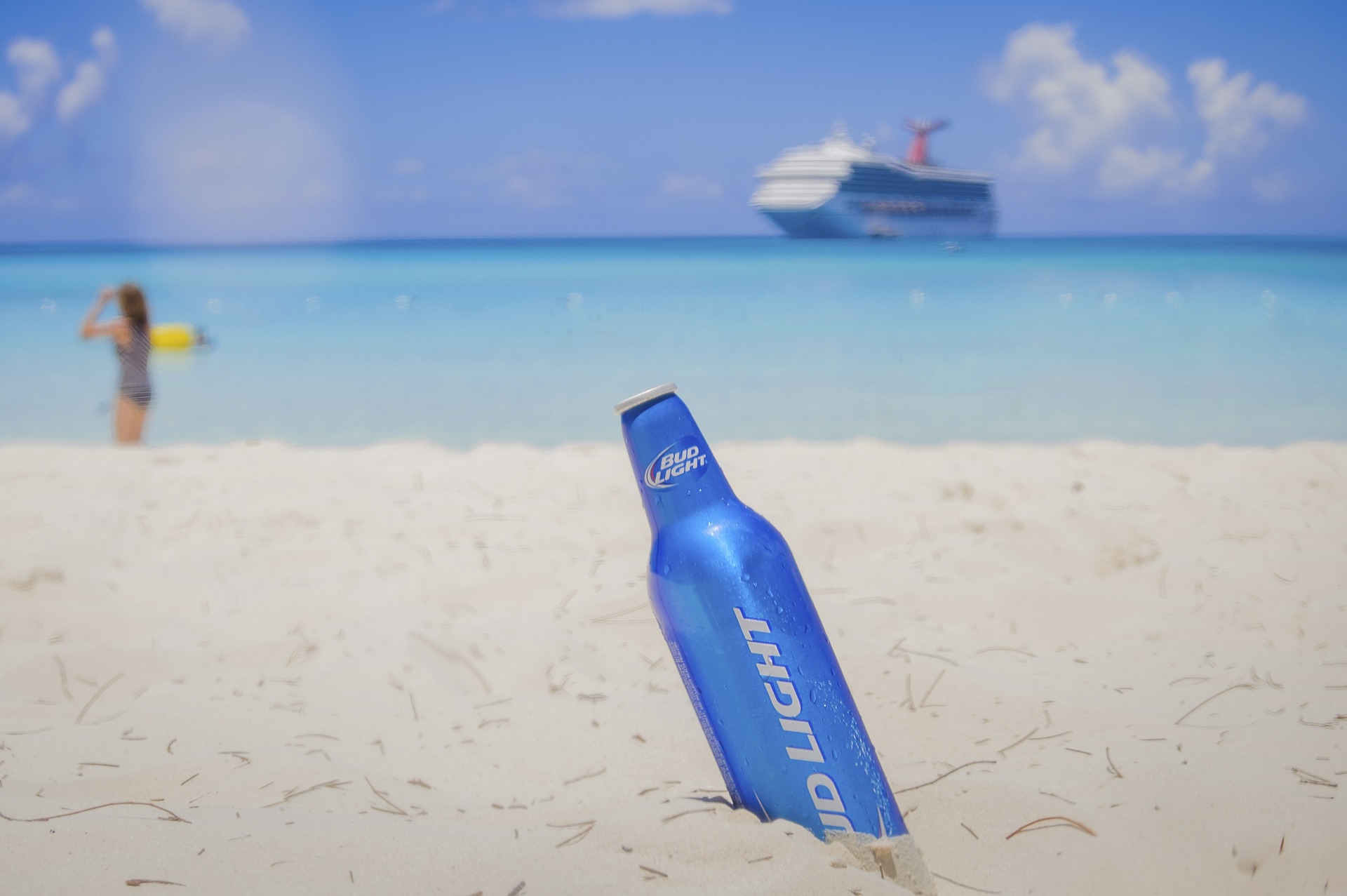Why the Bud Light Boycott Is Working
It turns out that money is power after all.

I actually like Bud Light. I did, anyway. People always complain that it tastes like bitter water, but all beer tastes a little like bitter water. Bud is cheap, and goes down easy. It does the job.
Or, it did the job. I've joined the millions of right-wing Americans trying to boycott Anheuser-Busch since Bud Light sent a custom can to the prominent transvestite Dylan Mulvaney, congratulating him on "365 days of being a woman."
It's petty, yes. And I'm generally not a fan of boycotts, given how many decent, non-political people's jobs depend on the success of corporations like Anheuser-Busch. But in this case I couldn't help myself.
Anheuser-Busch's initial response to conservatives' outcry told you everything you needed to know about the company and how it views its consumers. Initially, Bud Light stood by the Mulvaney stunt as part of its corporate commitment "to become as inclusive and diverse as we can." That came just weeks after Bud's then-vice president of marketing, Harvard Business School-grad Alissa Heinerscheid, said the company needed "to evolve and elevate" its "incredibly iconic brand" by "having a campaign that's truly inclusive." Ideally, she said, the campaign would distance the beer from its "brand of fratty, kind of out of touch humor."
I wasn't a frat boy, and I don't much like fraternities, but if my salary depended on the support of high-functioning college-aged alcoholics, the last thing I would do is try to distance my brand from "fratty, kind of out of touch humor."
A lot of people picked up on Bud's contempt for its customers, which is why the boycott has been so successful. It started just over a month ago, but Bud Light sales this year are already down about 8 percent. The company's weekly retail sales declined more than 20 percent at the end of April; the industry publication Beer Business Daily reported that it has “never seen such a dramatic shift in national share in such a short period of time.”
Now, of course, the higher-ups at Anheuser-Busch are scrambling. They have sent free Bud Light to distributors, who are incensed by plummeting sales. In a pathetic bid to win back their conservative audience, they have run vaguely patriotic commercials, touting the beer's roots "in the heart of America" with Clydesdale stallions prancing on dirt roads in the background. They have dismissed the Mulvaney stunt as "one single can given to one social media influencer" that "was not made for production or sale to the general public," as their CEO insists that Bud Light “never intended to be part of a discussion that divides people."
Anheuser-Busch might not have wanted to be "part of a discussion that divides people," but the die has been cast. Reneging its support for Dylan Mulvaney and his custom can already has progressive groups up in arms, with Jay Brown of the Human Rights Campaign claiming the company's "actions demonstrate a profound lack of fortitude in upholding its values of diversity, equity, and inclusion" and could expose it to "long-term business impacts with employees and customers increasingly looking for steadfast commitment to LGBTQ+ corporate citizenships."
Bryan Roth, an industry analyst, similarly argued in a CNN piece that Bud Light, while alienating conservatives, "has lost an opportunity to stand by Mulvaney and show a new generation of consumers how it cares about the people younger generations admire,” which apparently includes not-especially-convincing transvestites.
Subscribe Today
Get daily emails in your inbox
Those are veiled threats from Brown and Roth. And they are threats with teeth. Progressives have an entire infrastructure built not only to boycott explicitly conservative corporations but to punish those corporations that fail to toe the progressive line. The environmental, social, and governance movement is woven into the fabric of our financial system, rating companies on their compliance and facilitating investment in those corporations that demonstrate, as Brown put it, "steadfast commitment to LGBTQ+ corporate citizenships."
There is no comparable non-state equivalent to the ESG movement for conservative investors and consumers to influence corporate behavior. They do not have rating agencies of the same size and scale. They do not have conservative compliance departments stationed in every corporate headquarters. They do not have decades of court precedent they can use to make corporations jump at their commands.
What they do have is their wallets. And so far, that has been enough to make Bud Light shake in its seat.